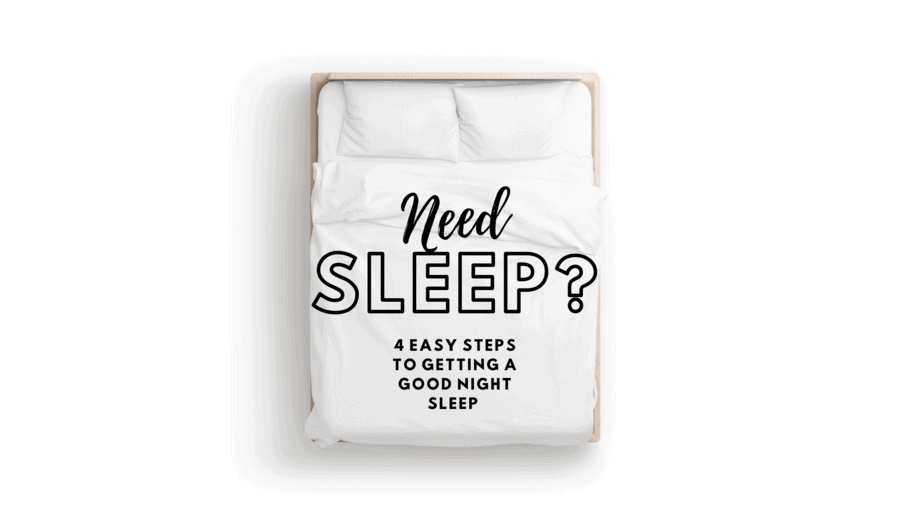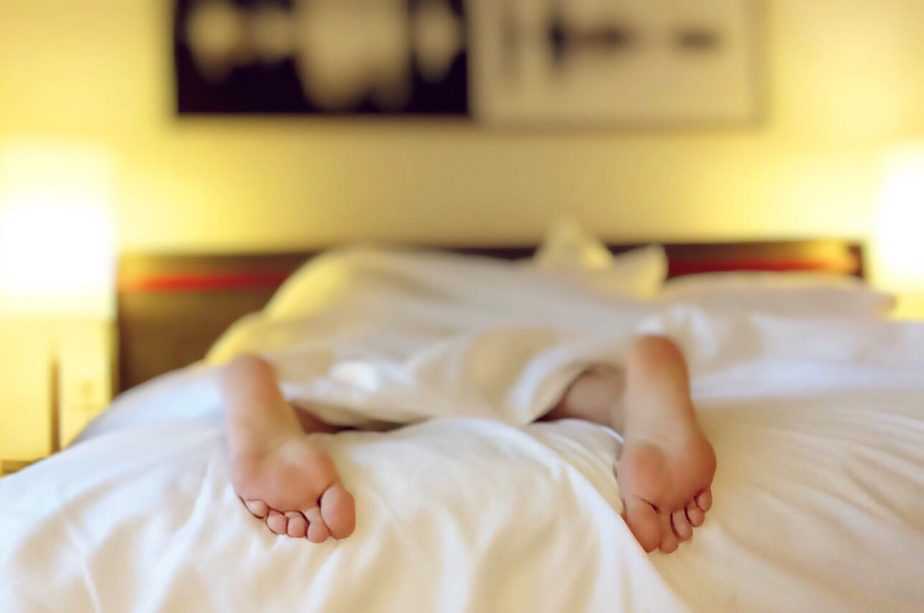We spend around one third of our lives asleep, yet somehow, we are still tired. When your life is jam packed full of activity, sometimes it is hard to unwind and get the rest you need. When you’re a parent, getting a good night’s sleep is almost impossible. Even once your kids are older and sleep through the night, sometimes they get sick, have a nightmare, or simply can’t sleep. Being tired is part and parcel of being an adult, but are there ways to improve your sleep schedule and feel less like you’ve been hit by a truck every morning? Yes. Yes there are.
4 Easy Steps To A Good Night’s Sleep

Of course, there are the obvious things – a comfortable mattress, a quiet room, and total darkness. You’ve tried this, but is there more to it than simple changes? Here are three easy steps you may not have heard of, to help you get a good night’s sleep.
Good Quality Bed Sheets
How does this make a difference to my sleep schedule? Trust me, it does. Some people enjoy a soft, marshmallow-y feeling on their sheets, while others love their sheets to feel crisp and totally clean. Whatever your preference, having good quality sheets will revolutionize your sleep schedule. But why?

Photo by Pixabay from Pexels
Ethically sourced, science-backed bed sheets such as bamboo lyocell sheets can absorb moisture more easily, which helps you feel cool and clean, rather than sticky and uncomfortable, while you are asleep. Plus, high quality linen or eco fibre bed sheets do not hold onto bacteria as easily, and do not contain as many microplastics which can affect your breathing. So yes, your sheet quality matters. A lot.
Essential Oils
If you are not already an aromatherapy enthusiast, essential oils can change your life. Used with water in a diffuser or applied in small droplets to your pillow or forehead, essential oils can provide calm and relaxation to your bedroom space, helping you settle down for a good night’s sleep. Different essential oils provide different ambiance, so here is a list of calming essential oils to help you slip seamlessly into dreamland.
Lavender oil. This is by far the most popular essential oil, used frequently for its calming properties. A few drops on your pillow or your forehead before you sleep will help you breathe deeply and get rid of those worrying late-night thoughts.
Rose. This gorgeous floral scent will make it feel like a breezy summer evening, even if it is not. You will be blown away by the calming, relaxing sensations of the rose essential oil.
Ylang Ylang. This is often used in perfumes because it frankly smells delicious. Ylang Ylang is a yellow flower which originates in South East Asia. This essential oil is said to reduce anxiety and alleviate stress.

Stepping Away From Your Screens
Nowadays, our phones are basically the extension of our arm. Many people are in the bad habit of lying in bed, scrolling their phone or watching Netflix while they’re going to sleep. Your smartphone or laptop screen emanates blue light, which is scientifically proven to damage your eyes if you have too much exposure. Plus, the colors and bright light of your screen will stimulate your brain into thought and activity – the opposite of what you need when you are trying to sleep.
If you feel you want to do something calm before bed, try reading a book, stretching for five or ten minutes, or even meditation. Alternatively, spend the last ten minutes before bed washing your face, brushing your teeth, tidying your space quietly and calmly, before finally climbing into bed and shutting your eyes. Stepping away from a screen for one hour before you hit the hay will help you get deep sleep and create a tranquil mindset for the night ahead.
A Sleep Diary
If you are struggling with a prolonged case of insomnia, a sleep diary can really help. What is a sleep diary? Well, a sleep diary can take many forms, in whatever way works for you. But the simple structure of a sleep diary goes through how many times you woke up in the night, how long on average it took you to get to sleep, and how many hours you got. In addition, you can write down the dreams you had, if you remember them. A sleep diary can help compartmentalize your worries about poor sleep, and can help if you seek medical help with your poor sleep.